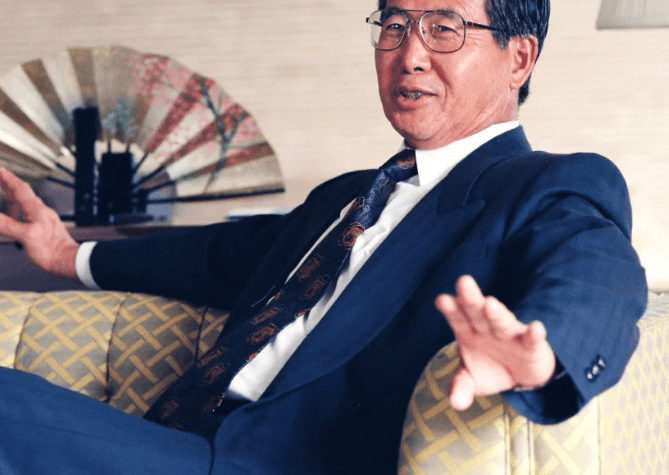Former Peruvian President Alberto Fujimori, a figure whose presidency was marked by both economic stabilization and severe human rights abuses, passed away at the age of 86. His death was announced by his daughter, Keiko Fujimori, who shared the news on X, noting his long battle with cancer.
Early Life and Rise to Power: Born to Japanese immigrants, Fujimori’s journey from an agricultural university graduate to Peru’s president was unconventional. His political career began with a television show on environmental issues before he founded the Cambio 90 party, leading to his election in 1990. His presidency was characterized by drastic economic measures, known as “Fujishock,” which tackled hyperinflation but at significant social cost.
Presidential Legacy: Fujimori’s administration saw the capture of Shining Path leader Abimael Guzman, significantly reducing the insurgency’s threat. However, his methods included authoritarian crackdowns on opposition, which later led to his conviction for human rights violations. His second term was marred by corruption scandals, most notably involving his intelligence chief Vladimiro Montesinos, whose bribe-giving was caught on tape, leading to Fujimori’s eventual downfall.
Legal Battles and Health Issues: After fleeing to Japan and attempting to resign via fax, Fujimori was later extradited from Chile to Peru, where he faced multiple trials. Convicted of various charges including human rights abuses, he spent years in prison, with his health deteriorating. A medical pardon in 2017 was met with public outrage and later overturned, leading to his re-incarceration.
Public and Political Reaction: Fujimori’s death has reignited debates over his legacy. While some Peruvians credit him with saving the country from economic ruin and insurgency, others remember him for the dark era of authoritarian rule, corruption, and human rights abuses. His political influence continued through his daughter Keiko, who has been a significant figure in Peruvian politics.
Conclusion: Alberto Fujimori’s passing closes a chapter in Peru’s turbulent political history, leaving behind a legacy that is as divisive as it is impactful. His economic policies and security measures transformed Peru but at a moral and human cost that continues to be debated. His death might not resolve the controversies surrounding his tenure but serves as a reminder of the complexities of leadership in times of crisis.





